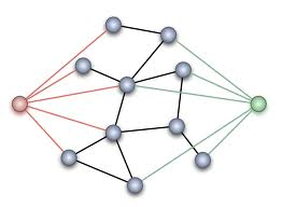 This month’s Clean TX Foundation Power Lunch featured Dr. Michael Webber of UT-Austin speaking on the interdependence of our energy, water and food supplies. The over-arching message is that currently our energy production depends heavily on water supply, while treating and distributing water consumes much of our energy. At the same time, food production and distribution currently consumes a big fraction of our energy and water. Here are a few further points I took away to ponder:
This month’s Clean TX Foundation Power Lunch featured Dr. Michael Webber of UT-Austin speaking on the interdependence of our energy, water and food supplies. The over-arching message is that currently our energy production depends heavily on water supply, while treating and distributing water consumes much of our energy. At the same time, food production and distribution currently consumes a big fraction of our energy and water. Here are a few further points I took away to ponder:
Energy: Cooling water for our coal, natural gas and nuclear power plants account for about 45% of all water withdrawn from surface and groundwater sources in the U.S. Cooling water is discharged back into the environment. Power plants consume about 3% of total U.S. water usage. Given this water dependency, when water supplies are too hot, too cold, too abundant (flooding), or too little (drought) electrical blackouts become an issue Additionally, the extraction processes for coal, natural gas and crude oil require water (e.g. hydraulic fracturing, a.k.a. fracking and washing coal as it is mined).
Water: Collecting, treating and distributing water for public/industrial use consumes large amounts of energy for the operation of pumps and chemical/physical processing equipment. This is particularly so, if you get your drinking water from desalination like they do in countries along the Persian Gulf. In fact the salinity of the Persian Gulf has risen measurably due to vast amount of water desalination there.
Food: In the U.S., about 10% of our energy consumption goes into growing, processing and distributing food. On average, we waste about 25% of our edible food. The amount of energy associated with this food waste is enough to power the country of Switzerland for a year!
Good news: To quote Dr. Webber, “The U.S. is decarbonizing quickly for the wrong reasons.” The reasons are purely economic. To me economics isn’t “wrong.” The economy is simply something created by people for people to deliver value and services for life. At any rate let’s keep the “decarbonizing” going!

Leave a Reply